Sir Peter O'Sullevan: Unflappable, unmistakable, unrivalled
- Published
Sir Peter O'Sullevan recalls Grand National glories
They say to never meet your heroes because they are sure to disappoint.
But Sir Peter O'Sullevan was a hero to so many of us who completely disproved the theory.
As well as being the soundtrack to racing for millions, an incisive journalist, prolific writer, racehorse owner, punter and tireless fundraiser, we've also lost a completely charming person who went out of his way to help and support.
Sitting next to such a legend for the first time at some media event was daunting, but I recall being effortlessly put at my ease with an inquiry about how I was getting on at the BBC - he always wanted to know the gossip from the Corporation on which he held strong, not always favourable views.
And the stories were legion, not, of course, just of things about which he'd been told over the decades, but of which he'd actually been part.
A favourite way of starting the story would be: "As recently as 1947…"
Sir Peter O'Sullevan remembered
So, he wasn't just a walking, talking encyclopaedia about decades of racing, but he'd had all sorts of roles in the sport during that time, from walk-on to starring.
Nothing illustrated that better than the 1974 Triumph Hurdle at the Cheltenham Festival when his own horse, Attivo, won with him behind the microphone.
In those unmistakable tones and with the trademark unflappable style, it is hard to detect even a quiver of emotion in his voice as he called the horse home in front and added "owned by Mr Peter O'Sullevan".
Everyone has a favourite commentary moment from the most imitable of broadcasters - go on, I'm sure you have tried to copy the great man's tones, with varying degrees of success, I certainly have - and there's no doubt what mine is.
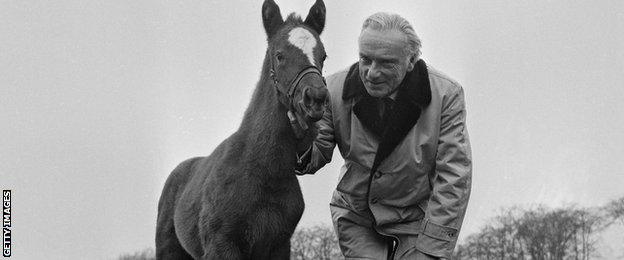
Sir Peter O'Sullevan in 1969
I asked him about it a year or two ago over a bottle of something pretty decent - he loved what might be called the good things in life - at his large flat tucked away behind the Kings Road in central London.
"You remember, I'm sure Peter, a successful jockey of the 1970s and 80s era, Malcolm Bastard," I said.
"Of course, mi 'lad," he replied. His mind was as sharp as anything and his eyes bright right to the end.
"The story goes," I continued, "that you always called him Malcolm Bastard (as opposed to queasier colleagues who preferred Bas-tard) and one day when he was riding for the trainer Pam Sly it's said that you declared 'It's another win for the Sly-Bastard combination'.
"Is it true? It's just that I might put it in my after-dinner routine."
"Ha, ha," he said with a grin. "I like it - that's certainly one to keep going with and how flattering you thought of me." Characteristically humble as well.
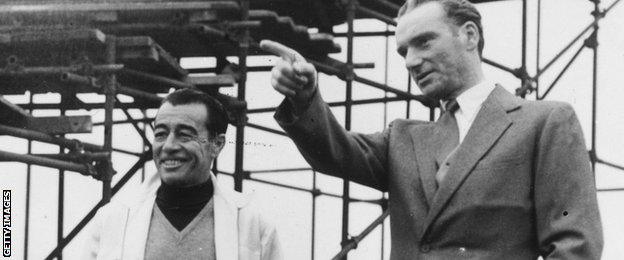
O'Sullevan with jockey Ray Johnstone at Epsom in 1955
And he loved a bet. Bookies feared a call from 'The Voice' on any dark horse from France, where he was particularly well-connected, or Ireland, during the period when trainer Vincent O'Brien was in his pomp.
Bookmaker Wally Pyrah once told me the six most dangerous words in the English language, as far as he was concerned, followed a tap on the shoulder or early morning telephone call: "I think we can do business."
It was said too that one of the few ways to determine if he was 'on' a good bet during a commentary was to listen out for any reference to a runner "making significant progress"; that meant he was.
But now those sumptuous tones have gone quiet forever and are mourned by dyed-in-the-wool racegoers and once-a-year punters on Grand National day alike.
A hero who never disappointed.
- Published29 July 2015
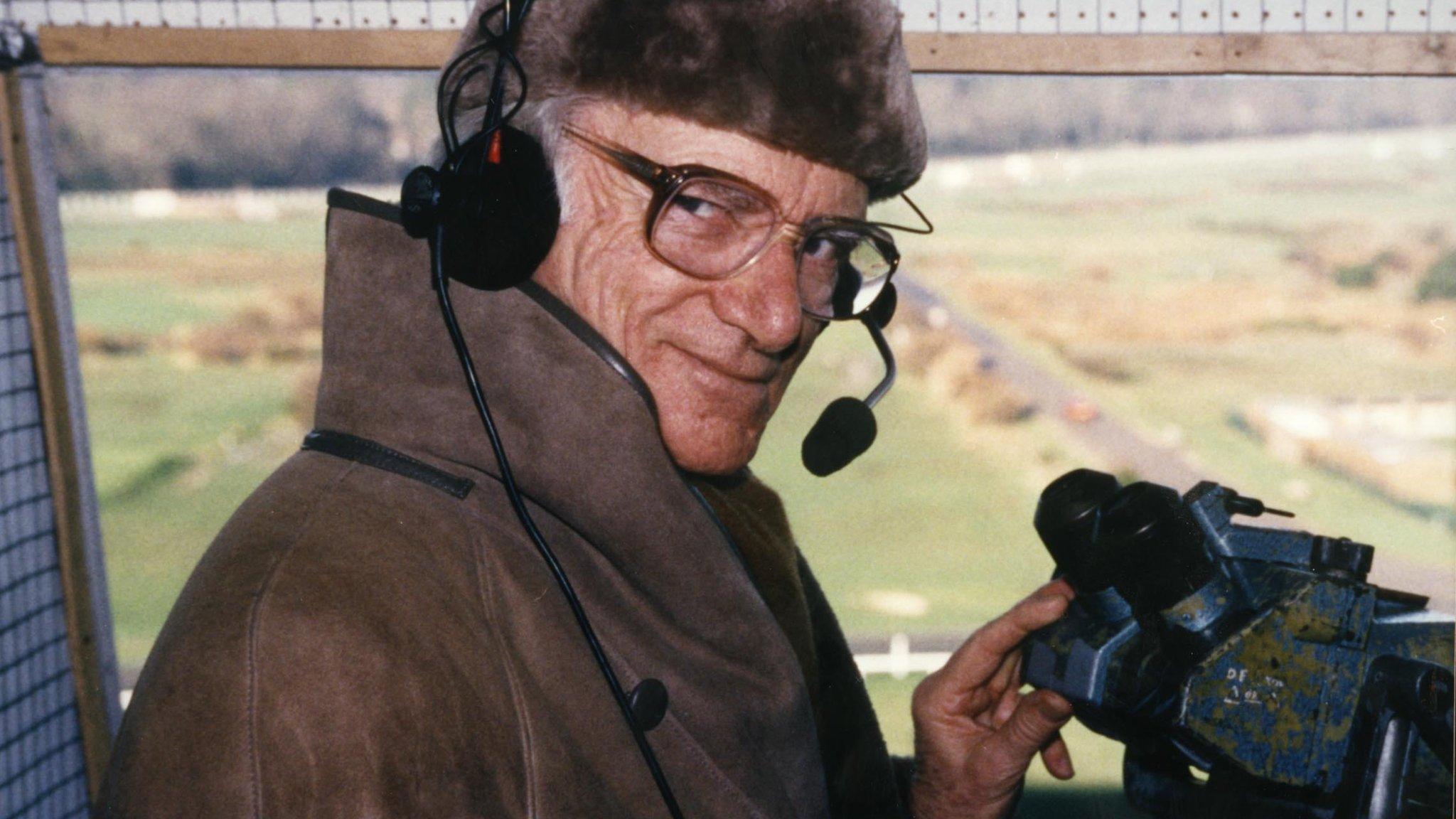
- Published29 July 2015
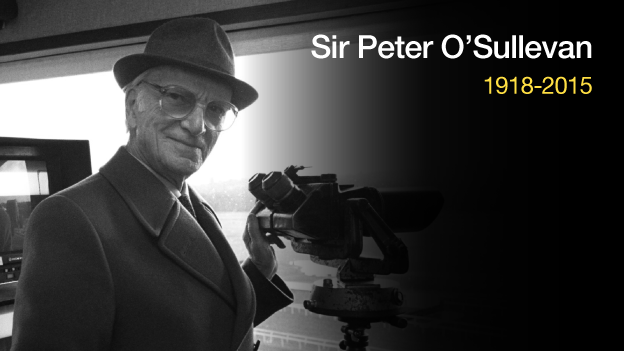
- Published29 July 2015
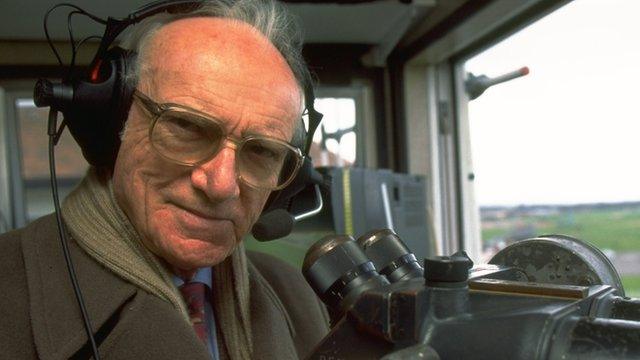
- Published29 March 2013
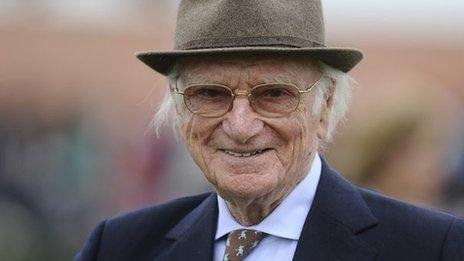
- Published21 December 2018
